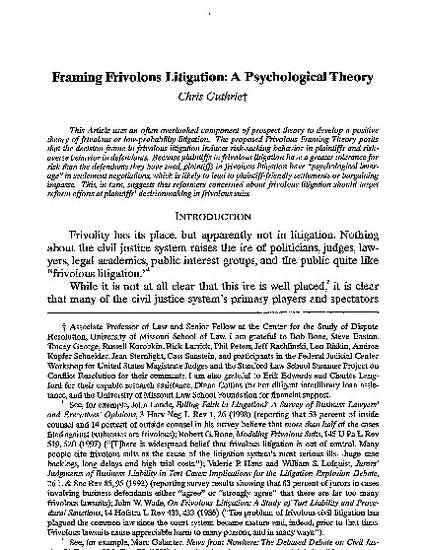
- frivolous suits,
- psychological leverage,
- low probability,
- risk-seeing behavior
This Article uses an often-overlooked component of prospect theory to develop a positive theory of frivolous or low-probability litigation. The proposed Frivolous Framing Theory posits that the decision frame in frivolous litigation induces risk-seeking behavior in plaintiffs and risk averse behavior in defendants. Because plaintiffs in frivolous litigation have a greater tolerance for risk than the defendants they have sued, plaintiffs in frivolous litigation have "psychological leverage" in settlement negotiations, which is likely to lead to plaintiff-friendly settlements or bargaining impasse. This in turn, suggests that reformers concerned about frivolous litigation should target reform efforts at plaintiffs' decisionmaking in frivolous suits. e
Available at: http://works.bepress.com/chris-guthrie/25/
